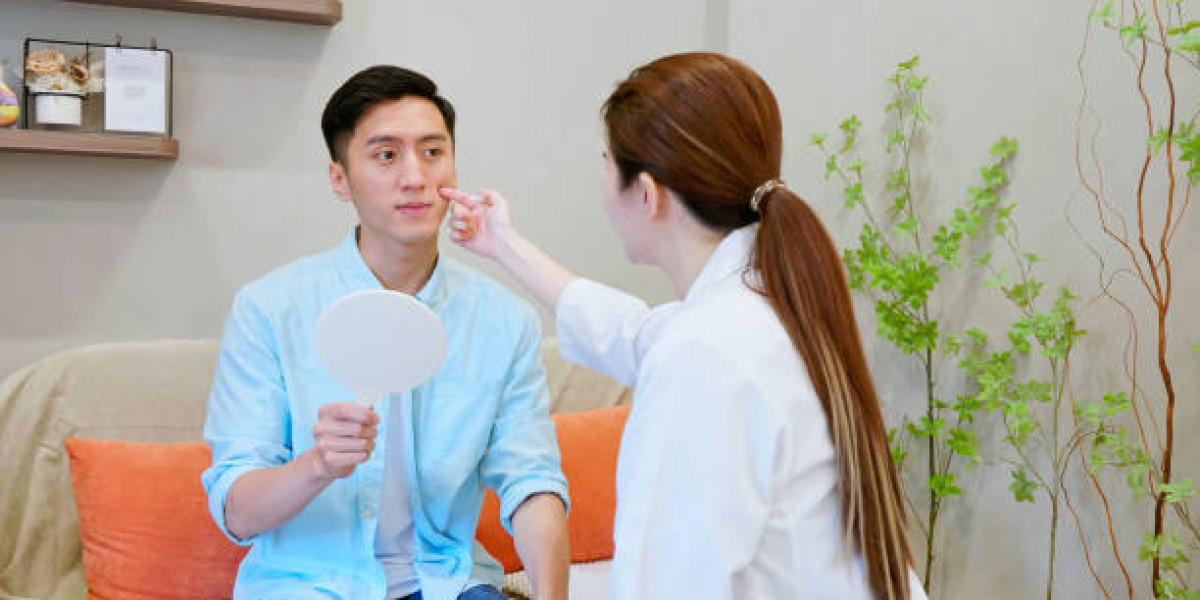Understanding the Rising Concern of Skin Cancer
Skin cancer is increasingly becoming a global health concern, and Saudi Arabia is no exception. With the country’s hot climate and high levels of UV exposure, people living in Riyadh are particularly vulnerable to sun-related skin damage. Early detection and awareness are critical, and consulting a Dermatologist in Riyadh can play a vital role in prevention and treatment strategies.
Why Riyadh’s Population Is at Risk
Residents of Riyadh are exposed to intense sunlight for most of the year. UV radiation is one of the leading causes of skin cancer, especially for individuals who spend extended periods outdoors without sun protection. A Dermatologist in Riyadh often treats patients showing signs of sun damage, which, if ignored, may develop into more serious conditions such as basal cell carcinoma, squamous cell carcinoma, or even melanoma.
Common Types of Skin Cancer You Should Know
Basal Cell Carcinoma (BCC)
This is the most common type of skin cancer. It often appears as a flesh-colored or pearly bump and grows slowly. While it rarely spreads, it can cause local damage if not treated promptly.
Squamous Cell Carcinoma (SCC)
SCC is more aggressive than BCC and may appear as a firm, red nodule or a scaly lesion. Without early treatment, it has the potential to spread to other parts of the body.
Melanoma
The deadliest form of skin cancer, melanoma, can develop from existing moles or appear as a new dark spot. It spreads rapidly and requires immediate medical attention.
Warning Signs That Should Never Be Ignored
Changing Moles
If a mole changes in size, color, shape, or becomes itchy or bleeds, it could be a warning sign of melanoma.
Persistent Sores
Wounds or ulcers on the skin that do not heal over several weeks may be indicative of skin cancer.
New Growths
Any new lump or growth on the skin should be checked by a professional, especially if it grows rapidly or looks unusual.
Importance of Regular Skin Screenings
Routine skin checks by a certified Dermatologist in Riyadh can significantly reduce the risk of advanced-stage skin cancer. Early diagnosis is often the key to successful treatment. Dermatologists use specialized tools like dermatoscopes to detect irregularities not visible to the naked eye.
Prevention Starts with Awareness
Wear Sunscreen Daily
Many people underestimate the importance of sunscreen, especially on cloudy days. A broad-spectrum SPF of 30 or higher is recommended, even indoors, as UV rays can penetrate through windows.
Avoid Peak Sun Hours
Try to limit sun exposure between 10 a.m. and 4 p.m., when UV rays are strongest. If you must go out, wear protective clothing, wide-brimmed hats, and UV-blocking sunglasses.
Educate Children Early
Teaching sun safety to children is crucial. Childhood sunburns significantly increase the risk of developing skin cancer later in life.
Myths vs. Facts: Debunking Common Misconceptions
Myth: “I have dark skin, so I don’t need sunscreen.”
Fact: While melanin offers some protection, it does not make you immune to skin cancer. Everyone, regardless of skin tone, needs sun protection.
Myth: “Sunscreen is only necessary at the beach.”
Fact: UV rays are present year-round and can reflect off surfaces like sand, water, and concrete—even in urban environments like Riyadh.
Myth: “Skin cancer is rare in the Middle East.”
Fact: Studies show a growing number of skin cancer cases in the region due to increased outdoor activity and low awareness about sun safety.
Role of Dermatologists in Riyadh in Skin Cancer Prevention
A certified Dermatologist in Riyadh not only diagnoses and treats skin cancer but also guides patients on effective prevention strategies tailored to the region's unique climate and lifestyle. Their experience with local skin conditions provides an advantage in identifying early signs that might otherwise go unnoticed.
Treatment Options and What to Expect
Surgical Excision
The most common treatment involves removing the cancerous tissue along with a margin of healthy skin to ensure complete removal.
Mohs Surgery
A precise surgical technique often used for BCC and SCC on sensitive areas like the face. It allows minimal tissue removal while ensuring all cancer cells are eliminated.
Cryotherapy
Involves freezing cancer cells with liquid nitrogen. Effective for certain superficial skin cancers or precancerous conditions.
Topical Treatments
Prescription creams or gels that stimulate the immune system to fight abnormal cells or that contain chemotherapy agents are used for less invasive cases.
Lifestyle Changes That Can Help
Healthy Diet and Hydration
A diet rich in antioxidants supports skin health. Drinking plenty of water helps maintain the skin’s natural barrier and resilience against environmental stressors.
Regular Self-Examinations
Check your skin monthly using a mirror. Be familiar with your moles and freckles so you can detect any changes early.
Avoid Tanning Beds
Artificial UV exposure significantly increases the risk of all types of skin cancer. It’s not a safe alternative to natural sunlight.
Community Awareness and Education Initiatives
Awareness campaigns in Riyadh are helping shift the public’s understanding of skin cancer. From school-based education programs to workplace awareness days, the message is clear: prevention starts with knowledge. Dermatologists play a pivotal role in these initiatives by providing expert insights and free screenings during community events.
Final Thoughts: Take Control of Your Skin Health Today
Skin cancer is largely preventable, and when caught early, it’s also highly treatable. The key lies in education, vigilance, and regular check-ups. If you notice any changes in your skin, don’t delay. A trusted Dermatologist in Riyadh can provide the guidance, diagnosis, and reassurance you need to stay safe and healthy in the sun.
FAQs
How often should I visit a dermatologist for a skin check in Riyadh?
It is advisable to have a full-body skin exam once a year. However, if you have a history of sunburn, skin cancer, or notice any unusual changes, see a Dermatologist in Riyadh more frequently.
Is sunscreen necessary if I stay indoors most of the day?
Yes. UV rays can penetrate windows and still cause skin damage. A broad-spectrum SPF should be applied daily—even inside your home or office.
Can children develop skin cancer in Riyadh's climate?
Although rare, it is possible. Children should be taught sun-safe habits early and wear sunscreen, hats, and protective clothing during outdoor activities.
What are the early symptoms of skin cancer to watch out for?
Look for new growths, changes in existing moles, sores that don’t heal, or any itchy, scaly patches. When in doubt, always consult a qualified dermatologist.












